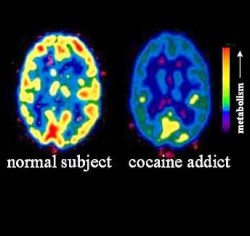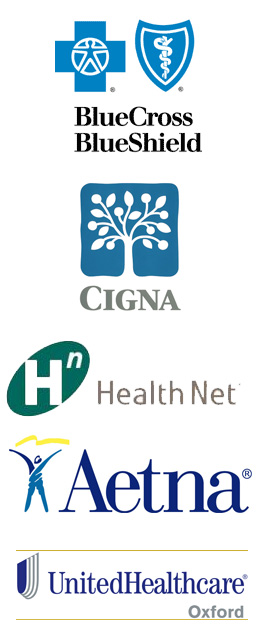Types of Help Available for Cocaine Abuse
Although their lives are spiraling out control, cocaine abusers seeking treatment are often ambivalent toward any types of help available for cocaine abuse. They may be more concerned with ending the crisis in their lives, do not understand the influence that even occasional use of cocaine can have, or fail to perceive any secondary substance abuse as problematic.
Understanding the Problem

Long-term cocaine abuse can cause structural damage.
Cocaine is a powerful stimulant drug that elevates moods, energy, and the sense of euphoria, but, more importantly, it is what’s known as a triple reuptake inhibitor (TRI) that affects nearly every activity of neurotransmission within the brain and central nervous system. The result is both, functional and structural damages that impact the person’s physical, mental, and emotional health with neurological impairments that can make life difficult long after the last dose.
Detox
Of course, detox is the first step in treating any type of psychoactive substance abuse and while there is no standard pharmacological treatment for cocaine abuse, the withdrawals can be managed with proper medical and psychiatric support, comfort, and guidance.
Motivating the individual to remain in treatment can be difficult, but, according to the SAMSA’s TIP #45,”A successful detoxification process can be measured, in part, by whether an individual who is substance dependent enters and remains in some form of substance abuse treatment/rehabilitation after detoxification.”
Behavioral and Psychosocial Interventions
The individual may not even recognize the significant consequences of their cocaine abuse until their mind clears after a couple of weeks. That’s when the turmoil can get even greater. Many cocaine abusers experience medical and psychiatric problems and various interpersonal, social, employment, and legal problems. Their behaviors may include:
- Illegal activities
- Extreme financial irresponsibility, including borrowing or stealing from friends, family, or employers
- Lack of hygiene or unhealthy eating and sleeping habits
- Aberrant or excessive sexual behaviors
- Cognitive impairments that affect academic or work performance, concentration, memory, or inhibited reasoning or judgment
- Have family and spousal problems stemming from neglect, abuse, infidelity, dishonesty and distrust
The stress and emotional turmoil that comes along with these behaviors is accompanied by depression, guilt, anxiety, paranoia, aggression or violent behaviors, and the possibility of suicide.
Individual, group, and family counseling combined with behavioral interventions can help the person identify problematic areas and work towards changing maladaptive thought patterns to more positive and productive ones. Motivations to improve and promote abstinence from all psychoactive substances and psychosocial support for treatment barriers such as transportation and child care should be used to enhance the outcomes.






